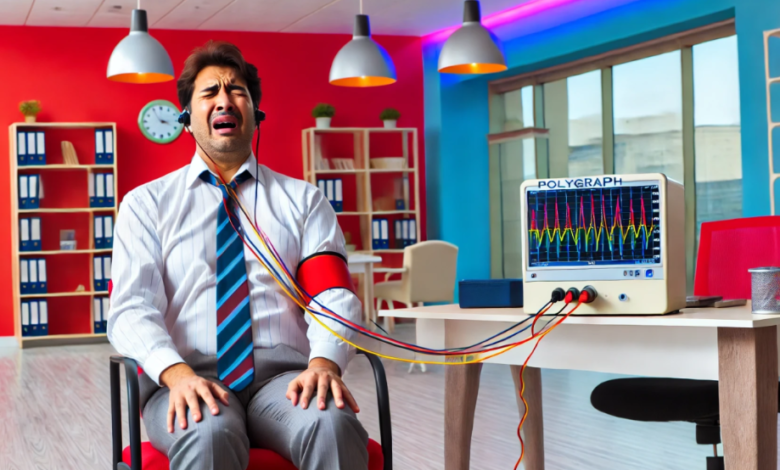Lie Detector Test in New Jersey: A Simple Guide

Introduction
The idea of uncovering the truth through science has fascinated people for decades. When faced with doubt, suspicion, or unresolved questions, many individuals turn to the lie detector test in New Jersey as a possible solution. Commonly known as polygraph tests, these exams measure changes in the body that may indicate stress or deception. While the results are not always accepted as legal proof in every situation, they can still play a major role in resolving conflicts, guiding investigations, and providing peace of mind. This guide will explain how lie detector tests work, when they are used in New Jersey, and what you should know before deciding to take one.
What Is a Lie Detector Test?
A lie detector test—or polygraph test—is a scientific method that monitors physical reactions when a person answers questions. The theory is that lying often triggers anxiety, and this anxiety shows up in measurable ways. The machine records signals such as:
- Heart rate
- Breathing patterns
- Blood pressure
- Skin conductivity (sweating)
These physiological signals are displayed as charts or lines, which the examiner interprets. If unusual spikes appear during specific questions, they may suggest the person is not telling the truth. While not foolproof, polygraph tests are still widely used because they can highlight inconsistencies that might otherwise be overlooked.
How Lie Detector Tests Work in New Jersey
Taking a lie detector test in New Jersey generally follows a structured process. First, there is a pre-test interview, where the examiner explains the procedure, answers questions, and establishes a baseline for the person’s normal physical responses. This step ensures the subject is comfortable and understands the rules.
Next comes the testing phase. The subject is connected to sensors, and the examiner asks a mix of neutral questions, control questions, and relevant questions. Neutral questions help measure normal responses, while control questions are designed to create a mild stress reaction. The key questions are directly related to the issue at hand—such as a crime, theft, or personal dispute.
Finally, in the post-test analysis, the examiner reviews the data and prepares a report. This report may indicate truthfulness, deception, or inconclusive results. In New Jersey, while these reports may not always hold up in court, they can still carry weight in private, professional, or investigative contexts.
History of Polygraph Tests in New Jersey
Polygraph testing has a long history in the United States, including New Jersey. Law enforcement began using lie detectors in the 20th century as tools to aid investigations. Police officers found that even if results could not always be presented in court, they helped identify leads, eliminate suspects, or encourage confessions.
Over time, the use of polygraph tests expanded beyond police work. Employers in sensitive industries—like government security and law enforcement—adopted them as part of their hiring or screening process. In more recent years, private citizens have also turned to polygraph tests to resolve personal matters, such as trust issues or accusations of dishonesty.
See also: Centre For Orthopedic Surgery: Advancing Bone And Joint Health
Accuracy and Reliability of Polygraph Tests
One of the biggest debates surrounding polygraph tests is their accuracy. Supporters argue that modern polygraphs, when administered by trained examiners, can achieve accuracy rates of 80–90%. Critics, however, highlight that nervousness, medical conditions, or deliberate attempts to manipulate responses can affect results.
In New Jersey, this mixed reputation explains why courts hesitate to accept polygraph results as evidence. While they can provide valuable insight, they should not be considered infallible. Instead, they function best as tools that help guide decisions rather than final verdicts.
Cost of a Lie Detector Test in New Jersey
The price of a lie detector test in New Jersey can vary depending on the examiner, location, and complexity of the case. On average, tests cost between $300 and $700. Some situations may require more in-depth sessions or detailed written reports, which can increase the cost.
While this may seem expensive, many people consider it a worthwhile investment, especially when seeking clarity in sensitive or high-stakes situations. Before booking, it’s wise to ask for a full breakdown of fees and services included.
Choosing the Right Examiner
Not all examiners are the same, which makes choosing the right one essential. In New Jersey, many professional polygraph examiners hold certification from the American Polygraph Association (APA) or other reputable organizations. This certification ensures that the examiner has undergone proper training and follows strict ethical standards.
When selecting an examiner, ask about their experience, credentials, and approach. A professional examiner should also be transparent about the limitations of polygraph testing and set realistic expectations.
Benefits and Drawbacks of Polygraph Tests
Like any method, polygraph tests come with both advantages and disadvantages.
Benefits include:
- Helping clarify unclear or disputed situations.
- Serving as a tool for law enforcement to move investigations forward.
- Providing reassurance or closure in personal conflicts.
By weighing these factors, individuals can make more informed decisions about whether a lie detector test is the right choice for their needs.
Location in New Jersey
- Fort Lee – 1 Bridge Plaza North, N Central Rd, 6th Floor, Fort Lee, NJ 07024
- Piscataway – 30 Knightsbridge Rd, #525, Piscataway, NJ 08854
- Basking Ridge – 233 Mt Airy Rd, 1st Floor, Basking Ridge, NJ 07920
- Parsippany – 1719 NJ-10, #300, Parsippany, NJ 07054
- Princeton – 103 Carnegie Center Dr, Princeton, NJ 08540
- Hampton – 53 Frontage Rd, 1st Floor, Hampton, NJ 08827
- Bedminster – 1 Crossroads Dr, Bedminster, NJ 07921
- Iselin – 33 Wood Ave, Iselin, NJ 08830
- Short Hills – 51 John F. Kennedy Parkway, Short Hills, First Floor West, Millburn, NJ 07078
- Edison – 110 Fieldcrest Ave 3rd Floor, Edison, NJ 08837
- Mahwah – 1000 Wyckoff Ave 3rd Floor, Mahwah, NJ 07430
- Hoboken – 221 River St 9th Floor, Hoboken, NJ 07030
- Jersey City – 2500 Plaza 5, Jersey City, NJ 07311
- Cherry Hill – 923 Haddonfield Rd, Cherry Hill, NJ 08002
- Tinton Falls – 3600 Route 66, Shore Crossings, Tinton Falls, NJ 07753
- Mt. Laurel – 309 Fellowship Rd, 2nd Floor, Mt. Laurel, NJ 08054
- Lawrence Township – 2564 US-1, Lawrence Township, NJ 08648
- Freehold – 4400 Route 9 S, Suite 1000, Freehold, NJ 07728
The Future of Lie Detection in New Jersey
While polygraph tests remain the most widely recognized tool for detecting deception, research is moving toward new technologies. Brain imaging, artificial intelligence, and voice stress analysis are being explored as alternatives or improvements to the traditional polygraph. In the future, these innovations may make lie detection more accurate and reliable. For now, however, polygraph tests continue to play a role in New Jersey across both public and private sectors.
Conclusion
A lie detector test can be a useful option for those seeking truth in difficult situations. While not perfect, polygraph tests can provide clarity, guide investigations, and even bring peace of mind. It is important to remember, though, that polygraphs measure stress responses, not lies directly. Their results are valuable but not definitive, which is why courts treat them with caution.
If you decide to take or request a test, choose a qualified examiner, understand the legal limits, and view the results as part of a bigger picture rather than the final word. By approaching polygraph testing with realistic expectations, you can use it as a helpful tool in the pursuit of truth.




